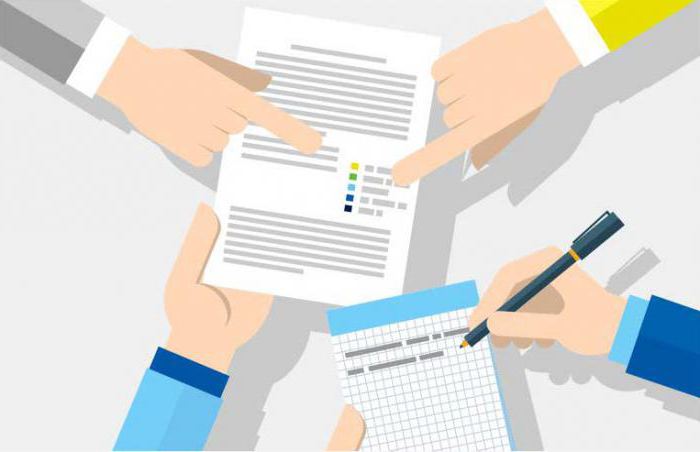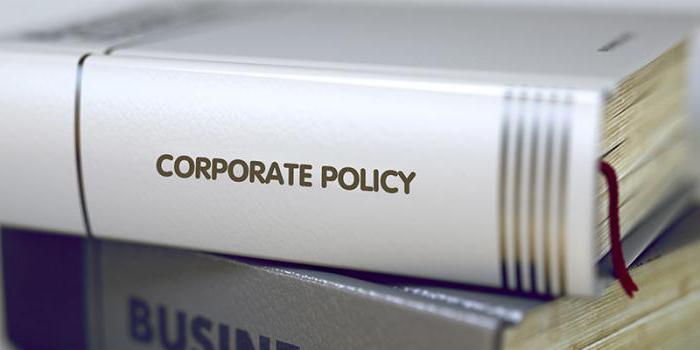Service standards are important for those who introduce them (managers), for those who must apply them and follow them (employees), for those to whom these standards apply and for whom they are introduced (customers, customers, consumers, etc.). d.). Standards cannot be left without additions. Some items are becoming obsolete and need to be replaced. Drafting is done by experts and professionals, but often the formation of standards is based on the wishes of consumers and the experience of ordinary employees. Usually, if all these factors are taken into account, standards are obtained that meet all the requirements of efficiency.

What is a standard?
This is not a job description. Standards are certainly associated with the assessment of the employee's work, the head can build a motivation scheme and exercise effective control. Service standards allow company management to understand what mistakes employees may make when communicating with a client and how to avoid them. That is, the standards have strategic benefits.
The standard is a practical document that will help not only the core team, but also beginners. Companies that work according to service standards usually enjoy great confidence, because they follow a certain order in the work of the team, which will certainly not go unnoticed by consumers.
Who is involved in standards
Professional service standards are developed jointly with the Ministry of Labor of the Russian Federation, professional communities and research centers. It is important to emphasize: in this work, the activity of representatives of various federations and associations is mandatory.
Professional standards contain the classification of professions, requirements for the level of qualifications, a list of professions in a particular industry, job responsibilities, a set of skills, etc. Also taken into account changes in the structure of the industry, noted in the labor market.
Why professional standards are needed
The effectiveness of the organization depends on how well the employees perform their work, how attentive they are to visitors and customers, how well they understand that the success of a large enterprise or small department depends on the performance of a simple service task and responsibility. The result is also affected by the well-established regulation of labor relations.

Professional standards of service can solve many issues that arise during the organization of the work process and affect the quality of the result.
Quality of service standards are regulatory documents that are presented to personnel at all levels and roles in the work team.
The standards spell out the conditions for performing quality work, tasks for each of the specialties, as well as the knowledge that an employee should possess.
What professional standards are made of
Customer service standards in their structure have three groups. The first includes:
- name and code according to the classifier of professions;
- skill level;
- requirements for education, experience, etc.
The second lists professional duties, the third part contains a set of necessary knowledge and competencies.
Professional standards give benefits to employers and educational institutions. However, for employees they are also assistants, for example, in order to confirm their qualifications with a certificate.
Service standards allow managers to designate a direction in improving the professionalism of their employees, as well as to monitor their activities during the working day.
Universities and colleges standards can help create new training courses and materials.
Professional standards are developed and applied in accordance with Articles 195.2 and 195.3 of the Labor Code of the Russian Federation. On their application issued a decree and order of the Government, information and an explanatory letter from the Ministry of Labor.

A special portal has been created from the Ministry of Labor and Social Protection - the software and hardware complex “Professional Standards”. Here are directories, classifiers and databases, as well as a national registry of occupational standards. Standards are updated, and the portal reports. A database of experts on the development and discussion of professional standards is presented and there is a service for notifying about the development of a professional standard.
National standard
The document has the number of GOST 52495-2005. It was approved by the Rostekhregulirovanie Order in 2005 and was edited in 2013. The standard of social services for the population is based on several categories, for example, “social services”, interpreting it as a system of services designed for people who are in a socially dangerous situation, have difficulties material or physical.
It also explains what is meant by a difficult life situation, and which categories are included here, that is, disability, unemployment, orphanhood, poverty, etc.
Standards of public services guarantee the provision of services and the provision of support through a system of social adaptation, for example, to adapt a person to the environment. In addition, social rehabilitation is provided to help a person restore his former status and quality of life. Among the concepts are also “consumer basket” and “cost of living”.
What does the national standard of social services contain?
The activities of social workers are carried out in several directions, and depending on the required competence, a standard is formed.
Support includes:
- The provision of state financial support, organization of consultations, assistance in finding work and employment and other economic services.
- Providing a social services client with products, items and shoes, hygiene products, wheelchairs or dentures may be required.
- Providing medicines and health advice.
- Medical patronage.
- Psychological and pedagogical assistance, the provision of domestic services and legal protection.
A whole system of social service institutions has been created in Russia. It is not fully represented in each city, but the main structures are located within the region or region. They work with clients of different ages and multiple needs. These are boarding houses, shelters, rehabilitation centers, neuropsychiatric boarding schools, etc.

Who help social workers
The responsibility of employees includes several groups of the population who, due to circumstances, need help - permanent or one-time. Under supervision are low-income, incomplete and large families, families in which there are relatives of alcoholics, drug addicts, etc .; single people, orphans and children whose parents are deprived of their rights, street children; unemployed; without a specific place of residence; minor mothers; internally displaced persons; released from prison; people with disabilities; refugees and other citizens at social risk.
Requirements for Institutions and Employees
State standards of social services determine the quality requirements, focused on several factors - from the criteria of the institution to the skill of its employees.
The social institution should have the necessary equipment and devices, as well as its own quality control service. Centers should not have a shortage of personnel of suitable qualifications.
Communicating with customers, employees should be responsive, polite, caring and courteous.
They are prohibited from disclosing customer information.
Social Standard Content
National standards of public services contain forms for the provision of various proposals. In the social and domestic orientation, requests for rooms in social service institutions, the state of furniture and things, requests for food, etc. are provided.
The quality of social and medical offers connects the features of the organization of medical and social services. The standard of public services include:
- prosthetics;
- methods of rehabilitation;
- medical procedures - measuring temperature, pressure, applying compresses, etc .;
- medical support at home;
- nail cutting, combing, linen change, feeding, etc .;
- counseling on family planning, the use of contraceptive methods, on ways to combat excess weight and bad habits, on the prevention of diseases, etc .;
- critical medical care;
- patronage of families raising children with disabilities;
- organization of labor rehabilitation;
- support when doing exercises.
The quality of socio-psychological offers is assessed through the effectiveness of conducting psychocorrection and training, organizing operational critical support, for example, by phone, conversations aimed at increasing stress resistance - this is recommended by standards of social services.

Socio-pedagogical proposals must be provided in various forms. This is support to guardians in order to avoid mistakes in upbringing, tips on behavior, placement in circles, study of home economics and practical skills, as well as in the use of technical rehabilitation methods. The employee is obliged to assist in mastering the profession or in the restoration of professional abilities, to train disabled children in self-care abilities and to help guardians to master the basics of rehabilitation.
National standards of social services in the category of socio-economic proposals quality is assessed with the assistance in obtaining benefits, allowances and compensation; in providing prostheses and hearing aids, food, things, etc. May need support in the device for professional courses.
When providing social and legal proposals, public employees are obliged to legally execute paperwork, for example, to receive benefits. Legal support may be needed in raising questions on how to provide rehabilitation methods or retirement benefits, an insurance medical policy or social benefits.
The effectiveness of support is measured by the timeliness.
The necessity of protecting or representing the client’s interests in court, preserving his rights behind the social security apartment, helping guardianship authorities to identify children in the family for adoption or guardianship, as well as for depriving parents of their rights, is not ruled out.
Customer Service Standards
The client you lost today, tomorrow is your competitor’s client. This simple rule is based on the attention of companies to the implementation of professional standards. It is difficult to find monopolists in a particular area of service or production. Therefore, working in a competitive mode, employees have to improve not only the product and quality of work, but also take into account the psychological factor when communicating with customers. That is, to establish a service system.
Therefore, today often professional standards of service quality are not limited to the requirements for the employee's knowledge and competencies. The principle of customer focus is beginning to take on value.Following the expansion of the former view of the client-business connection, service standards expand the structure.
For example, sales technique steps may be included. That is, the rules of contact with the client are prescribed, during which his needs are identified. In some stores, malls or points of sale, certain sales techniques may be recommended to sellers, of course, depending on the type of buyer and the current situation.
Customer service standards can also contain corporate values, that is, the principles of the company and customer interactions. Corporate standards typically include:
- employee appearance;
- culture of telephone calls;
- employee behavior rules in case of conflict with a client;
- attitude to the company and so on.
Hotel Service Quality Standards
Guest service has long deduced the basic rule: service should be unobtrusive, but the guest should not have difficulty finding a solution to a problem that arose during a stay. It is necessary to predict the wishes of the client, so that he was as comfortable as possible to be in a hotel or hotel. At the same time, personnel should never be bothersome.
Standards in the service sector, in particular hotel services, are developed for all employees: from the maid to the manager. Concierges, drivers, administrators, waiters, the receptionist and so on - literally all the hired staff should follow them. Of course, different hotels may differ, for example, ways to make a bed or the names of dishes on the menu, but the standards include a universal set of factors of quality service, leaving the nuances.

If the standards of social services have national features and largely depend on the culture and accepted norms of a particular society, then hotel service is based on international standards. Mostly newcomers live in hotels - the universality of the service in this case is appreciated more than the features in receiving guests.
Differences of a good hotel anywhere in the world
The speed of servicing and fulfilling requests and instructions is appreciated. The more accurately the order is completed, the more likely it is that the customer will be satisfied. This is helped by the ability of employees to predict the wishes of guests, for example, to offer the client mineral water in hot weather and so on. Assistance cannot be denied, citing the fact that the hotel employee is not responsible for this or it is not part of his responsibilities. It is recommended that you submit the request to the administrator or manager.
Standards require service personnel to be polite and correct. Some situations have a clear description:
- ask if the client needs help if he is two meters away;
- look in the eyes and smile when communicating;
- if there are situations in which the client will be inconvenient, you must apologize.
You can not leave the client unattended in those cases when he simply waits for his turn, for example, at the reception. It is necessary to give a sign with a look and a smile that he is noticed, and the employee, freed, will listen to him. The administrator should, whenever possible, offer the client coffee, a magazine, and chat with the person.
Service standards also contain appearance rules. Usually, office workers are recommended to wear light shirts, closed shoes, badges with a name and a position, plain socks, dark colors, fasten jackets. There are requirements for manicure, hair, jewelry. Men, for example, are forbidden to wear bracelets and earrings, to wear a beard. Women are recommended to put long hair in a ponytail, braid or bun, and also do not wear large earrings.
Custom Rules
Sometimes companies expand on accepted corporate standards.For example, one of the banks in several branches has implemented a quick service system: up to 3 minutes are spent per client, visitors with children under 5 years of age are served out of turn, waiting for an operator to answer a call is a minute. If bank employees do not fulfill these requirements, then the client receives bonuses.
Companies that are interested in maintaining and improving the quality of service usually offer customers to evaluate the work of employees. Such a system stimulates the staff, and gives the visitor the opportunity to express dissatisfaction or praise a particular manager.
When formulating standards, it is important to observe several rules in order to be effective.
Standards Criteria:
- The language should be specific, not allowing different interpretations.
- Requirements must have a measurement - for example, pick up the phone no later than the third signal.
- The employee must be able to fulfill the requirements of the standard - it is impossible to require the employee to meet the client if he is engaged in communication with another visitor.
- Employees must understand why standards are needed and not take them for tyranny. Therefore, the team needs to explain why such universal behavior will help the company and employees.
Maintenance system
A maintenance standard has been introduced for the full functioning of systems - their operability and technical condition monitoring. Includes periodic inspection, comprehensive maintenance, troubleshooting, repairs and conditions for the admission of workers.

The personnel must strictly follow the technical documentation: do not exceed the amount of permissible work, use only suitable spare parts for repairs, conduct a reliability check and regularly conduct an external inspection for defects, and eliminate them in a timely manner.
Where else do standards go?
The standards are adopted not only by commercial companies, but also by state ones, including departmental standards for the duty units of the Ministry of Internal Affairs.
Standards, for example, prohibit police from contacting or interrupting a female or male interlocutor. You need to choose a polite form, for example, "say please" or by name and patronymic. It is unacceptable for police officers to answer “I don’t know”, “we can’t do anything”, “you must”, and also use parasitic words.
Standards for conducting telephone conversations, the structure of the conversation (a peculiar scenario of communication with the client, also called a conversation script), rules of conduct with visitors in person and so on are also developed.
Departmental standards include the features of establishing contact using the rules of etiquette. It is necessary to clearly pronounce the words and be friendly when communicating.
Standards are accepted by banks, large resource organizations, holdings, chain stores, and maintenance services. Today they are everywhere where a person works with a person, where a clear pattern of behavior is needed. However, standards are common in technical industries. What was special at first is spreading more and more widely in everyday life.